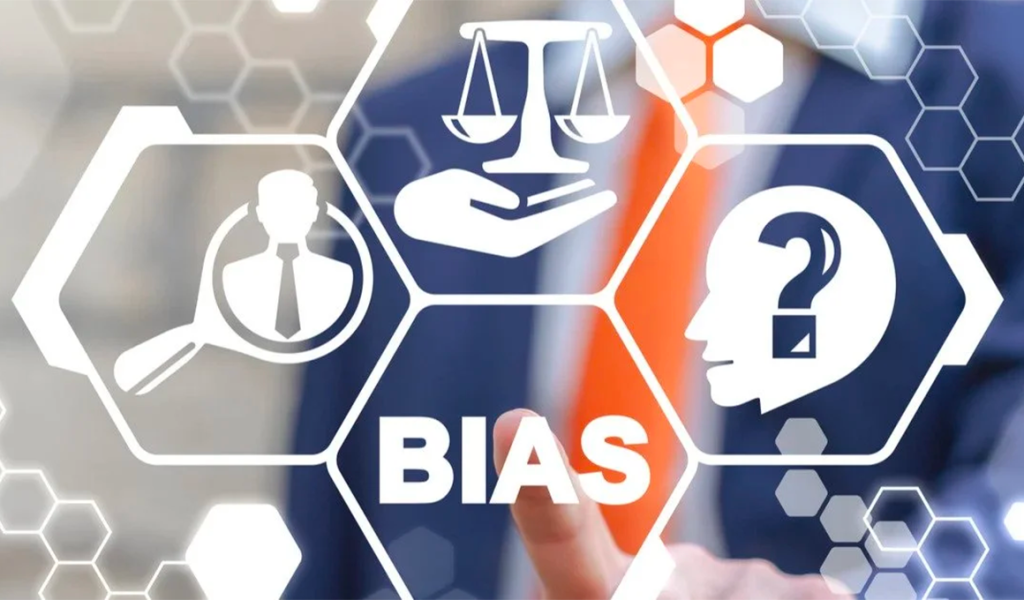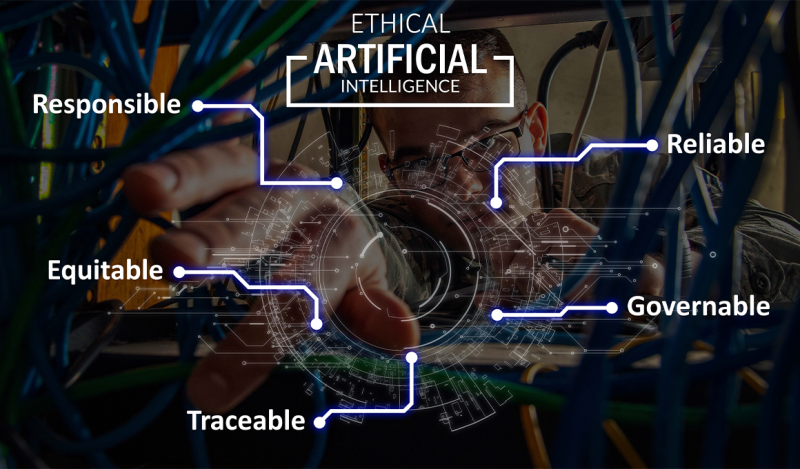In the ever-evolving landscape of technology, Artificial Intelligence (AI) has emerged as both a boon and a challenge, pushing us to question not only the capabilities it brings but also the ethical implications accompanying its rapid advancement. As we stand at the intersection of innovation and responsibility, it becomes imperative to delve into the ethics of artificial intelligence, unraveling the intricate tapestry that defines our interaction with intelligent machines.
The Moral Compass of AI
Imagine a world where machines can make decisions, learn from experience, and even exhibit a form of consciousness. While this prospect promises unprecedented progress, it also raises ethical dilemmas that demand careful consideration. The moral compass of AI extends beyond the realm of algorithms and code, penetrating the core of how we define humanity.

Transparency and Accountability
One crucial ethical dimension of AI lies in transparency. As AI systems become increasingly complex, ensuring transparency in decision-making becomes paramount. Understanding how AI arrives at a particular decision allows us to hold it accountable, just as with any human counterpart.
Take, for instance, autonomous vehicles. The ethical conundrum arises when these vehicles face situations where harm is inevitable. How should they prioritize the safety of occupants, pedestrians, and other drivers? Establishing transparent guidelines for AI decision-making in such scenarios becomes not just a technical challenge but a deeply ethical one.

Bias and Fairness
AI systems are only as unbiased as the data they are trained on. If historical data is marred by societal biases, AI models can perpetuate and even exacerbate those biases. Recognizing and rectifying these biases is crucial in ensuring fairness and equity in deploying AI technologies.
There is a growing emphasis on diverse and representative datasets to address this. Ethical AI developers are actively working to mitigate bias, promote inclusivity, and ensure that AI benefits all members of society, irrespective of their backgrounds.

The Responsibility of Creators
The ethical implications of AI also extend to the creators and developers behind the technology. As architects of intelligent systems, they bear the responsibility of embedding ethical considerations into the very fabric of AI. This involves a commitment to user privacy, data security, and society's overall well-being.

Privacy and Security
AI often involves the collection and analysis of vast amounts of personal data. Striking the right balance between harnessing this data for innovation and protecting individual privacy is a delicate dance. Ethical AI development requires robust measures to safeguard sensitive information, empowering users with control over their data and ensuring that AI serves as a force for good.

Mitigating Unintended Consequences
The rapid pace of AI innovation can sometimes outstrip our ability to anticipate and address unintended consequences. From deepfakes to algorithmic discrimination, the ethical challenges are manifold. Ethical AI developers actively engage in ongoing risk assessment, anticipating potential pitfalls and developing mechanisms to mitigate harm.

A Collective Endeavor: Shaping the Future Ethical AI Landscape
Ensuring the ethical deployment of AI is not the sole responsibility of technologists; it's a collective endeavor involving policymakers, ethicists, educators, and society. As AI permeates every facet of our lives, an informed and engaged public is crucial for shaping policies that align with our values.

Education and Awareness
An ethical AI future begins with education and awareness. The public needs to understand AI's capabilities, limitations, and ethical considerations. By fostering a culture of digital literacy, we empower individuals to make informed decisions about the technologies they use and advocate for ethical practices.

Multidisciplinary Collaboration
AI's ethical challenges are complex and multifaceted, requiring input from various disciplines. Collaboration between technologists, ethicists, psychologists, policymakers, and other stakeholders is essential. By fostering a multidisciplinary approach, we can harness diverse perspectives to navigate the ethical landscape of AI.

Conclusion: Balancing Progress with Ethics
As we stand at the forefront of the AI revolution, the ethical considerations accompanying this technological leap are more critical than ever. Balancing progress with ethics requires a thoughtful and intentional approach that places humanity at the center of technological innovation.
In the grand tapestry of artificial intelligence, the threads of transparency, fairness, privacy, and responsibility are woven together to shape the ethical fabric of our future. By actively engaging with these ethical dimensions, we can navigate the evolving landscape of AI with a compass that points towards a future where innovation aligns harmoniously with our shared values.









